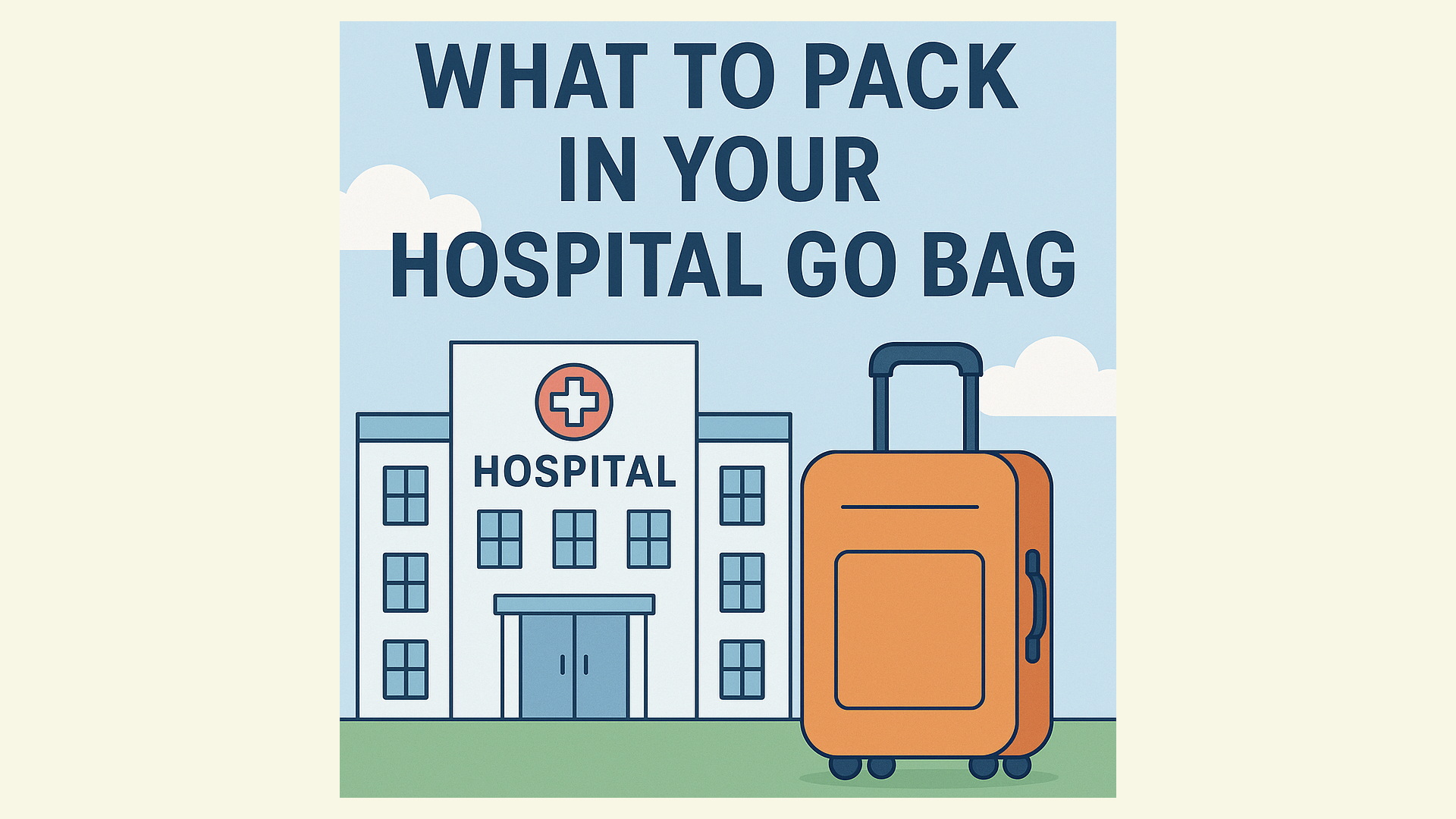I’ll be honest—this whole “having a baby” thing is a lot. Between the checkups, nursery prep, and keeping up with everyday life tasks, my brain has been swimming. And one piece of advice I kept hearing from experienced parents?
“Pack your hospital go bag early.”
So I finally sat down and researched what actually needs to go in this mysterious bag everyone keeps talking about. I wanted to be ready. To feel prepared and not have to panic last minute. If you’re also trying to figure this out for the first time, this post is for you.
Here’s what I learned.
What Is a Hospital Go Bag, Anyway?
Your hospital go bag is basically your overnight bag for when labor starts. It holds everything you’ll want (or need) during labor, delivery, and your hospital stay—whether that’s one night or a few. Most people suggest having it ready by 36 or 37 weeks, or earlier if you’re high-risk or expecting multiples.
I’ve broken down the list into three parts: what to pack for both mother and partner/support person, and the baby.
For Mom: Labor and Postpartum Essentials
This is the part that overwhelmed me the most—so many lists, so many opinions. Here’s what most parents agree on:
Important Documents
- ID and insurance card
- Birth plan (if you have one)
- Pre-registration forms (if your hospital uses them)
The doula in our labor and delivery class highly suggested doing pre registration forms if able as there are A LOT of forms to be admitted to the hospital.
Clothing and Comfort
- Loose, comfortable clothes for the hospital stay
- Nursing bras or tanks
- A cozy robe
- Slip-on shoes or grippy socks
- Flip-flops for the hospital shower
- A going-home outfit (think comfy loose pants, not jeans)
I added a soft zip-up hoodie like this to our bag too, since hospitals can get chilly.
Toiletries
The basics are key here:
- Toothbrush and toothpaste
- Lip balm (everyone says hospitals are super dry)
- Hairbrush, hair ties, and dry shampoo
- Deodorant
- Face wipes or a gentle cleanser
- Small bottle of body wash and lotion
You might not feel like doing a full skincare routine, but having your basics will make you feel human again.
Postpartum Care
Hospitals do provide some supplies—but a lot of moms say they’re not always the most comfortable.
- Heavy-duty maternity pads (or adult diapers, which some moms prefer)
- Nipple cream for breastfeeding soreness
- Nursing pillow (not required, but I’ve heard it helps a lot)
- A reusable water bottle to stay hydrated (especially if you’re nursing)
Hospitals will provide a lot of postpartum care, but we got a Frida Mom’s Postpartum Recovery Kit as they came highly recommended for postpartum care.
Comfort Extras
- Your own pillow (in a non-white pillowcase so it doesn’t get mixed up)
- Blanket or cozy throw
- Eye mask and earplugs if you’re a light sleeper (hospital is bright and noisy).
- Phone charger with a long cord
- Essential oils or a calming rollerball (lavender is popular)
For Baby: The Bare Essentials
You don’t need to bring your entire baby registry—just a few key items.
- Car seat (must be installed before discharge)
- A going-home outfit
- A couple of newborn onesies
- Hat and socks
- Blanket or swaddle
- Scratch mittens (to prevent newborn nails from doing damage)
- Baby nail clippers
- Pediatrician’s contact info (the hospital may ask)
Many hospitals provide diapers, wipes, and a basic swaddle. If you want to bring your own baby items, check out popular items like ones mentioned above in our baby registry post.
For Your Partner or Support Person
Hospital stays for labor and delivery vary in length, bring enough for each of you for several days.
- Change of clothes
- Snacks and drinks (you might not be able to eat during labor, but they will)
- Blanket or hoodie
- Toiletries
- Phone and charger
- A book, tablet, or something to pass the time
- A list of people to contact after the birth
- Reusable water bottle
- Small pillow if they’re planning to sleep there
- Button down shirt for easy skin to skin access
One of the best tips I saw was to pack each partner’s stuff separately (or in a different section of your bag) so it’s easy to find in the moment.
Optional (But Helpful) Add-Ons
Depending on your preferences and birth plan, you might also want to bring:
- Your birth playlist and portable speaker
- Towel from home (hospital towels can be scratchy and small)
- Journal or notebook to write down early memories
- A gift “from the baby” for older siblings
- A small bag of comfort snacks (for after labor)
What Not to Bring
It was also helpful to learn what not to pack:
- Anything too valuable (leave jewelry and expensive electronics at home)
- Too many baby outfits (they’ll mostly be swaddled)
- Pre-pregnancy clothes (they won’t fit just yet—be kind to yourself)
Final Thoughts
Packing this go bag feels like one of the first real, tangible ways I could prepare for our labor—and it made me feel a little less anxious. It’s one of those small steps that helps you feel ready, even if you’re not totally sure what to expect.
If you’re planning super early, maybe these are some things you could ask for on your baby registry as well.
Remember, you don’t need to be perfectly prepared—you just need to be present and mostly prepared. The rest can be figured out along the way.
